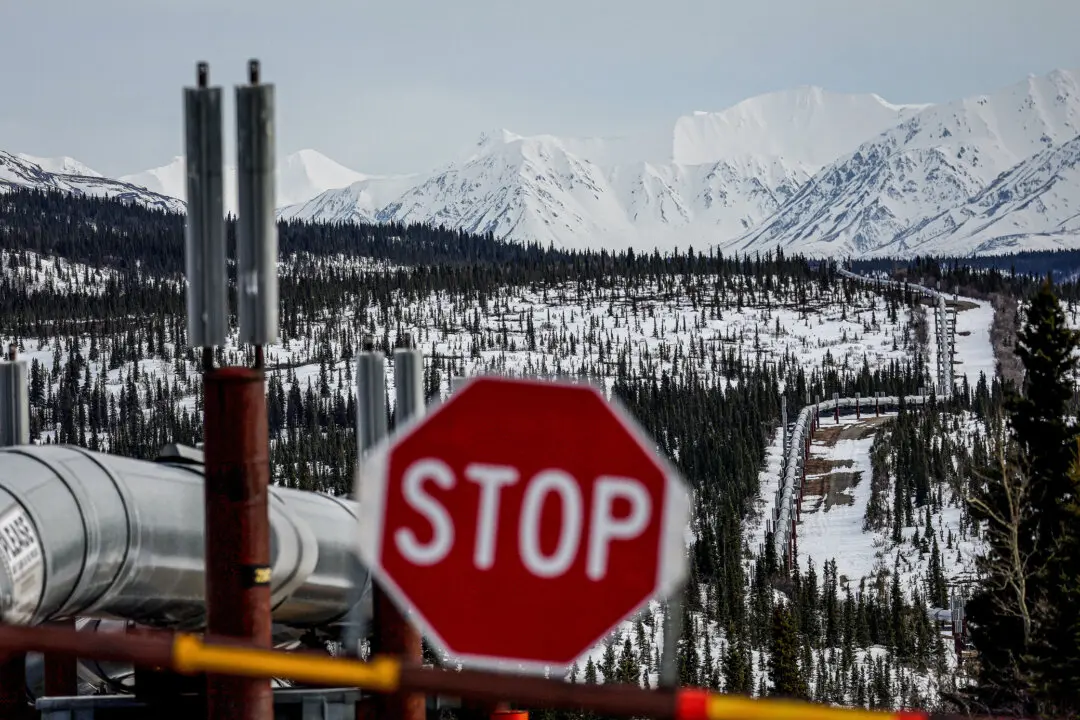While environmental and climate change advocates are celebrating the Biden administration’s drilling moratorium on almost half of the National Petroleum Reserve in Alaska, experts are warning of the detrimental impacts.
The U.S. Department of the Interior announced on April 19 that the Bureau of Land Management (BLM) had finalized a rule that will ban oil and gas drilling on over 13 million acres in the Western Arctic.
The BLM also released its Final Supplemental Environmental Impact Statement, denying re-approval of the Ambler Road project, which was proposed by the Alaska Industrial Development and Export Authority (AIDEA) in September 2022.
While the moves have been praised by environmental and climate change advocates, critics say they ignore the detrimental impacts these new rules will have on the local economy and national security.
Evergreen Action Senior Policy Lead for Energy Transition Mattea Mrkusic called it a “necessary step to strengthen protections for 13 million acres of Special Areas,” saying they look forward to working with the Biden administration “to end oil and gas drilling on public lands once and for all.”
In a similar vein, Earthjustice attorney Jeremy Lieb said in a statement, “We applaud this move and call for even bolder action to keep the fossil fuel industry out of the Arctic, for the sake of the climate and future generations.”
But critics say that the moves will hurt the economy and undercut America’s national security by reducing domestic energy independence before viable alternatives are available—especially given the coming higher energy demands for increasing digitalization and wider use of AI models.
Diana Furchtgott-Roth, a policy expert at The Heritage Foundation, told The Epoch Times in an interview that the drilling ban “sends a strong signal that production of oil and natural gas and critical minerals is not encouraged or supported” by the Biden administration.
“We don’t want to depend on China for those critical materials,” she said. “There’s a big race for these critical minerals in the waters of the Arctic.”
‘Misguided’
Alaska’s economy is based predominantly on oil production. The majority of the available jobs in Alaska are in the oil production and mining industries.
Alaska is also one of the leading sources for gold, silver, copper, zinc, graphite, cobalt, lead, and rare earth elements—many of which are crucial components in renewable energy technology in the production of batteries for electric vehicles.
Denying the Ambler Road project effectively restricts future mining in the area because there will be no roads for the mining companies to use.
Ambler Metals Managing Director Kaleb Froehlich said the company was “deeply disappointed” in what he called the Biden administration’s “politically motivated decision” to block the Ambler Road project.
Alaska’s unemployment rate is already at 4.8 percent, nearly a full percentage point above the national average of 3.9 percent.
Mr. Froehlich also predicted the rules will deprive Alaska’s Native communities “of thousands of good-paying jobs and millions of dollars of badly needed tax revenues and economic investment.”
He said the new restrictions will also prevent the United States from “developing a domestic supply of minerals that are critical for clean energy technology and national security.”
Some opposition to the Biden administration’s drilling curbs in Alaska came from indigenous community leaders.
Voice of the Arctic Iñupiat President Nagruk Harcharek accused the Biden administration of ignoring the needs of indigenous people by imposing a policy “that does not reflect our communities’ wishes.”
Insisting the move will cause more harm than good by reversing years of progress, impoverishing his community, and putting their culture in peril, he said this latest action is all part of “a concerning trend” by an administration that “claims to be the most Indigenous friendly government on record” but doesn’t “live up to its own rhetoric.”
By contrast, Alaska Wilderness League Executive Director Kristen Miller told The Epoch Times in an interview that the organization is “very excited” about the decisions, saying the drilling moratorium “is going to protect some of the most ecologically significant areas of America’s Arctic.”
She praised what she called President Biden’s “great history on climate change,” describing the new rules as “part of the solution to fighting back against the biodiversity crisis.”





